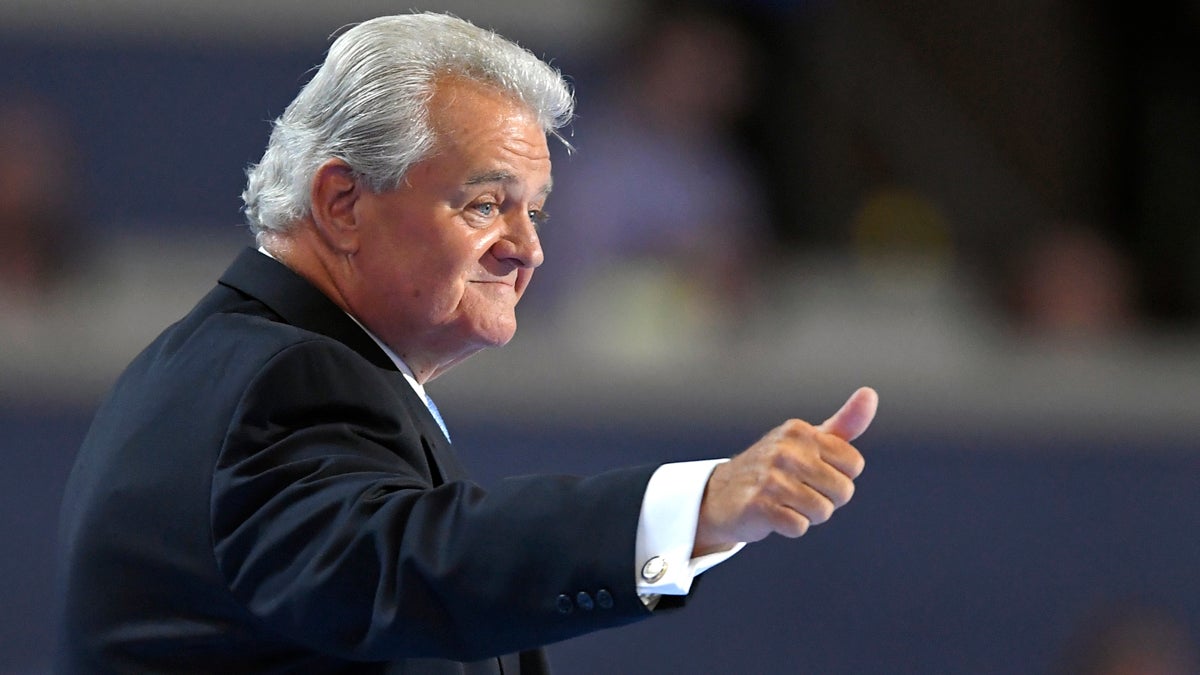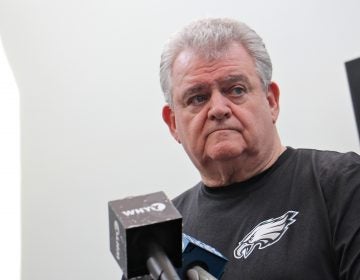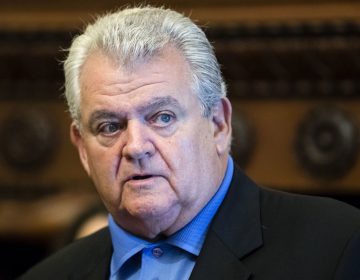2018: Trouble for Congressman Brady?
For nearly 20 years, Bob Brady's been re-elected to Congress without a serious fight, but next year may be different. We look at whether he's vulnerable.
Listen 4:01
As a master of old-school politics, U.S. Rep. Bob Brady is a fascinating throwback in Washington. But an array of circumstances could make it difficult for him to win another term in Congress. (AP file photo)
For nearly 20 years, Philadelphia Democratic Party chairman Bob Brady has served in Congress without facing a serious challenge for re-election. That could change in 2018.
An FBI investigation into Brady’s 2012 re-election campaign, changing demographics in his district, and a Donald Trump-inspired energy among progressives have encouraged several challengers to consider a run at Brady’s seat in next year’s Democratic primary.
Brady is a fascinating throwback in Washington, a master of old-school politics. He started as a neighborhood committeeman and rose through the ranks of the 34th Ward in Overbrook to become party chairman.
When I visited his ward headquarters on Election Day of 2016, he offered a discourse on basic constituent service as a building block of political power.
“You know, presidents are great, and mayors are great, and people like to say they voted for them,” Brady said. “But they still want their potholes fixed, they still want a stop sign, they still want a street light, and that’s the bread and butter.”
Now 72, Brady has built strong relationships throughout his district, which includes parts of South Philadelphia, Center City and the river wards of the Northeast, as well as riverfront communities in Delaware County.
Former City Controller Jonathan Saidel, an old Brady ally, said he’s heard of potential challenges, but wouldn’t bet against Brady.
“I can’t find anybody that’s against him. I can’t find any union that’s against him, any community group that he hasn’t touched in the last 20 years,” Saidel said. “He helped a lot of people, and he hasn’t had any opposition because of that.”
New landscape?
But there are signs the political terrain is shifting. The river wards and South Philadelphia communities — historically white working-class neighborhoods loyal to the party organization — are increasingly home to new, more independent and progressive voters.
Many energized by the election of Donald Trump turned out in the May Democratic primary, shocking the Democratic establishment by dumping three-term incumbent City Controller Alan Butkovitz in favor of first-time candidate Rebecca Rhynhart.
It’s not the same electorate Brady is used to, said Democratic strategist Brendan McPhillips.
“They’re younger voters. They’re not looking to their committeeperson and their ward leader to get their guidance on who to support,” McPhillips said. “They’re figuring that out for themselves, and, if somebody excites them, that’s who they’re going to get behind.”
The feds
Brady’s other problem is the federal investigation that’s put his name in headlines and on television much of the past year — and not in a good way.
The probe focuses on what prosecutors say in court filings is a deal Brady struck in 2012 to get Jimmie Moore, his primary opponent, out of the race by tapping his campaign fund for $90,000 to pay off Moore’s debts.
Brady hasn’t been charged, but two of his longtime associates have. Both are political consultants the feds say engaged in phony transactions to hide the payments.
One, Donald “D.A.” Jones has pleaded guilty to one count of lying to the FBI. The other, Ken Smukler, may go to trial during Brady’s campaign, generating more damaging media coverage.
It’s not hard to imagine an opponent’s line of attack: Brady’s old school deal-making has brought shame to the city, and it’s time for a younger, more progressive representative in Washington.
Who’s in?
Nina Ahmad, a former president of the Philadelphia chapter of the National Organization for Women, is already in the race. She said it has nothing to do with the investigation.
“I was going to do this whether he was vulnerable or not, because for us to be in the 21st century and to have no women representing Pennsylvania is reprehensible,” Ahmad said.
Ahmad has the means to make some noise. She’s put $600,000 into her race and said she’s committed to raising more.
Lindy Li, a 27-year-old former investment manager who explored running in suburban districts in 2016, said she’s “extremely likely” to get in the race.
She also cited the need for Pennsylvania to send women to Congress and said younger representation is needed.
“If we change who’s at the table, we change the culture, we change the climate.” Li said.
Others are said to be considering a run including Omar Woodard, 32, executive director of the Philadelphia branch of the GreenLight Fund, a nonprofit venture capital firm that invests in efforts to end poverty.
Woodard declined to comment for this story.
McPhillips noted that Brady would begin the race with advantages of name recognition, incumbency and plenty of traditional political allies, so beating him wouldn’t be easy.
There’s also the conventional wisdom that a large field of challengers would help Brady by splitting the opposition vote.
Brady declined to discuss his prospects for next year, except to say that he feels confident going before voters again.
Candidates can begin circulating nominating petitions for next year’s congressional primary on Feb. 13.
WHYY is your source for fact-based, in-depth journalism and information. As a nonprofit organization, we rely on financial support from readers like you. Please give today.





